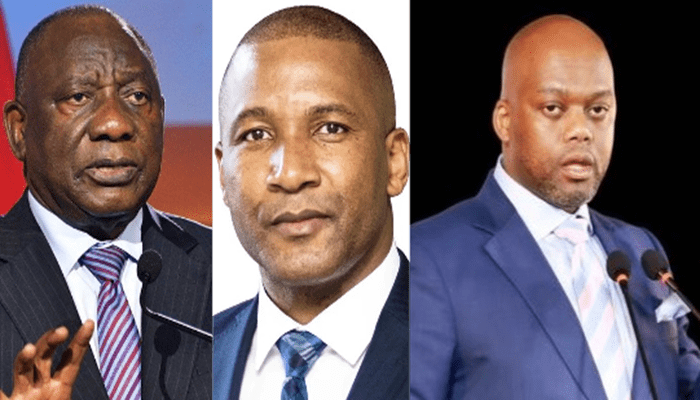The World Economic Forum (WEF) 2025 summit in Davos, Switzerland, brought Africa’s potential to the forefront, with leaders and experts reaching a consensus on the transformative power of digitalisation for the continent.
The forum, attended by over 60 global leaders and economic powerhouses, emphasized the critical role emerging technologies will play in accelerating Africa’s development and addressing persistent challenges.
The potential of digitalisation
The WEF projected that Africa’s digital economy, fueled by technologies like artificial intelligence (AI) and the Internet of Things (IoT), could contribute $1.5 trillion to the continent’s GDP by 2030.
This unprecedented growth is expected to revolutionize multiple sectors, including agriculture, healthcare, education, and governance.
From precision farming to personalized learning and efficient public services, digital transformation promises to reshape the African landscape, fostering inclusive and sustainable growth.
Digitalisation as a youth-centric solution
Speaking at a special roundtable on Africa, Botswana’s President, Duma Boko, underscored the significance of digital technology in addressing the continent’s challenges.
“Africa’s youth form the majority of its population. To leverage this demographic dividend, we must adopt digital technologies, the language of young people, across all sectors of our economies,” President Boko stated.
He emphasized that the digital economy offers a unique opportunity to address unemployment, drive innovation, and create pathways for young Africans to thrive.
Digital trade protocol as a game changer
Secretary-General of the African Continental Free Trade Area (AfCFTA) Wamkele Mene, highlighted the indispensability of digitalisation in unlocking Africa’s economic potential.
He announced the forthcoming adoption of the Africa Digital Trade Protocol, designed to facilitate seamless digital trading across the continent.
“The protocol on digital trade will address challenges like youth unemployment and create an environment for SMEs to flourish through investments in digital public infrastructure,” Mene said.
He also stressed the need for interoperable payment systems to enhance intra-African trade.
“It’s unacceptable that while I can fly directly between Ghana and Nigeria, transferring money between these two countries requires routing through third-party systems. We must develop seamless payment solutions to address these inefficiencies,” he noted.
Mene further called on governments and investors to prioritize digital infrastructure, youth entrepreneurship, and trade finance as pillars for Africa’s future.
Digitalisation enhances trade and development
South African President Cyril Ramaphosa reinforced the call for a digital-first approach, advocating for the integration of AI and emerging technologies into Africa’s economic framework.
“The digitization of the continent, particularly with artificial intelligence, will enhance trade and development. These technologies are key enablers that we want to see fully developed,” Ramaphosa said.
He emphasized that digitisation is essential not only for economic growth but also for addressing the socio-economic disparities across the continent.
Projected Impacts of the digital economy
The consensus at WEF highlighted several transformative impacts of a fully digitalised African economy:
Agriculture
Precision farming technologies will boost productivity, reduce waste, and enhance food security.
Healthcare
Telemedicine and AI-powered diagnostics will expand access to quality healthcare, particularly in remote areas.
Education
Personalized learning tools will revolutionize education, empowering young Africans with relevant skills.
Governance
E-governance systems will enhance efficiency and transparency in public service delivery.
Trade
Interoperable payment systems and digital trade protocols will facilitate seamless intra-African trade, reducing costs and delays.
Challenges and the way forward
While the opportunities are immense, leaders acknowledged the hurdles, including inadequate infrastructure, regulatory bottlenecks, and limited digital literacy.
“Writing the laws is the first step to building investor confidence and attracting funding for digital technologies,” Mene said, urging governments to create robust legal frameworks.
The WEF summit concluded with a unified commitment to fast-track digital transformation across Africa.
The adoption of the Africa Digital Trade Protocol next month is seen as a significant milestone in this journey.
As Africa prepares to embrace the digital economy, the vision of a $1.5 trillion contribution to GDP by 2030 underscores the urgency of action.
Leaders, businesses, and stakeholders must collaborate to harness the power of digitalisation, ensuring that its benefits reach every corner of the continent.
The 2025 WEF has not only spotlighted Africa’s potential but also set the stage for a future where digital innovation drives inclusive and sustainable growth.
- Valeria, the amputee giving 1,000 other amputees new life - 25 April 2025
- Moses Baiden calls for unified African tech strategy - 25 April 2025
- Govt will settle debt owed Zoomlion-MPs - 25 April 2025




